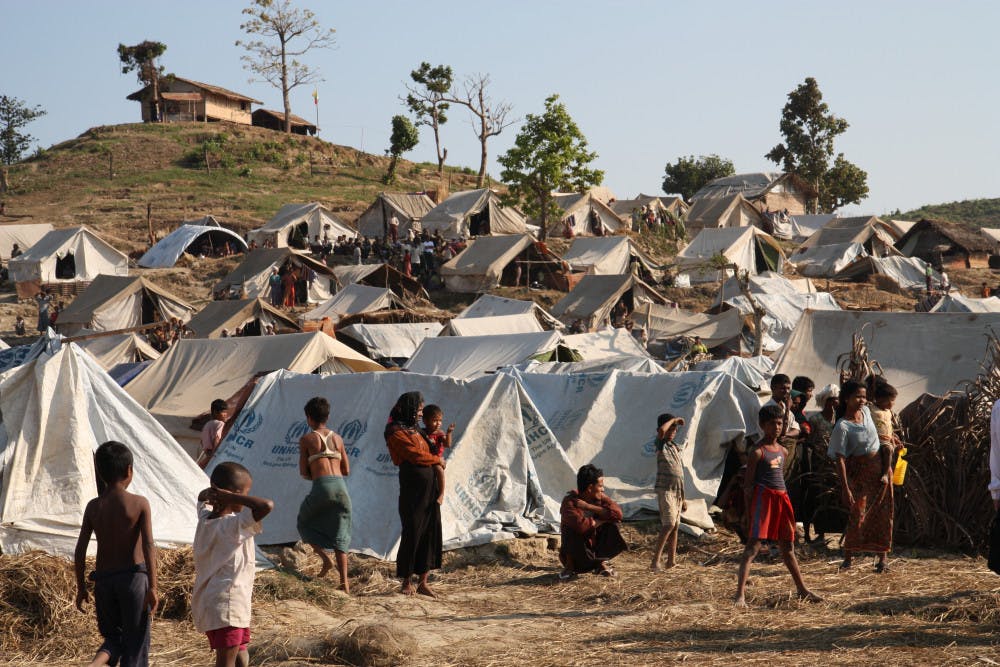During what the UN's human rights chief considers a "textbook example of ethnic cleansing", Aung San Suu Kyi stays mostly silent on military actions against the Rohingya people. The Nobel Peace Prize recipient refused to admit the wrongdoings of her military and denounced all human rights violations that are being posed on the military and the government. Suu Kyi, the de facto leader of Myanmar, has sided with the majority of the country who considers the Muslim minority as illegal noncitizens. As reported in the Washington Post, Suu Kyi’s shift in the recent years from human rights activist under house arrest to “leader” of the country complicates the situation. The military still holds much of the power in the country, meaning political backlash if she were to criticize their actions. Still, many are disappointed that someone who championed human rights stays passive when such an issue is present.
While many focus on the de facto leader of Myanmar, the inflow of Rohingya refugees in the past month challenges the capacity of refugees that Bangladesh can and is willing to host. Over 501,000 refugees fled into Bangladesh in the past four weeks, according to the UNHCR. Lydia Lahey, a doctoral student and research assistant in the Geography Department specializing in Refugee Studies explains, “Bangladesh is different because the path to Bangladesh is being bombed right now. So one of the main problems people have been seeing is that like smugglers are smuggling Rohingya refugees out which is tricky and it causes more deaths than it helps people”
Once the Rohingya people arrive to Bangladesh, they face overcrowded and hastily built refugee camps that lack basic necessities, such as food, water and shelter. The Rohingya Muslim crisis has already been called “...the most rapid exodus from any country since the Rwandan genocide.” Bangladesh hopes Myanmar will create a peaceful resolution so that these refugees can return home, though The Human Rights Watch notes that Myanmar revoked their citizenship in 1982 and have consistently refused to grant citizenship to these peoples every since. Though no other nations are offering to take in the already stateless people, aid is provided to ease the strain on Bangladesh’s already lacking resources. Lahey explains a growing Western trend to offshore aid explaining, “[most western nations] in place of accepting less refugees, they’re offshoring which is they provide more humanitarian aid money to other countries like Turkey and Lebanon to accept refugees in their place.”
The refugee crisis is in its fourth week, with Bangladesh now hosting over 800,000 refugees.





